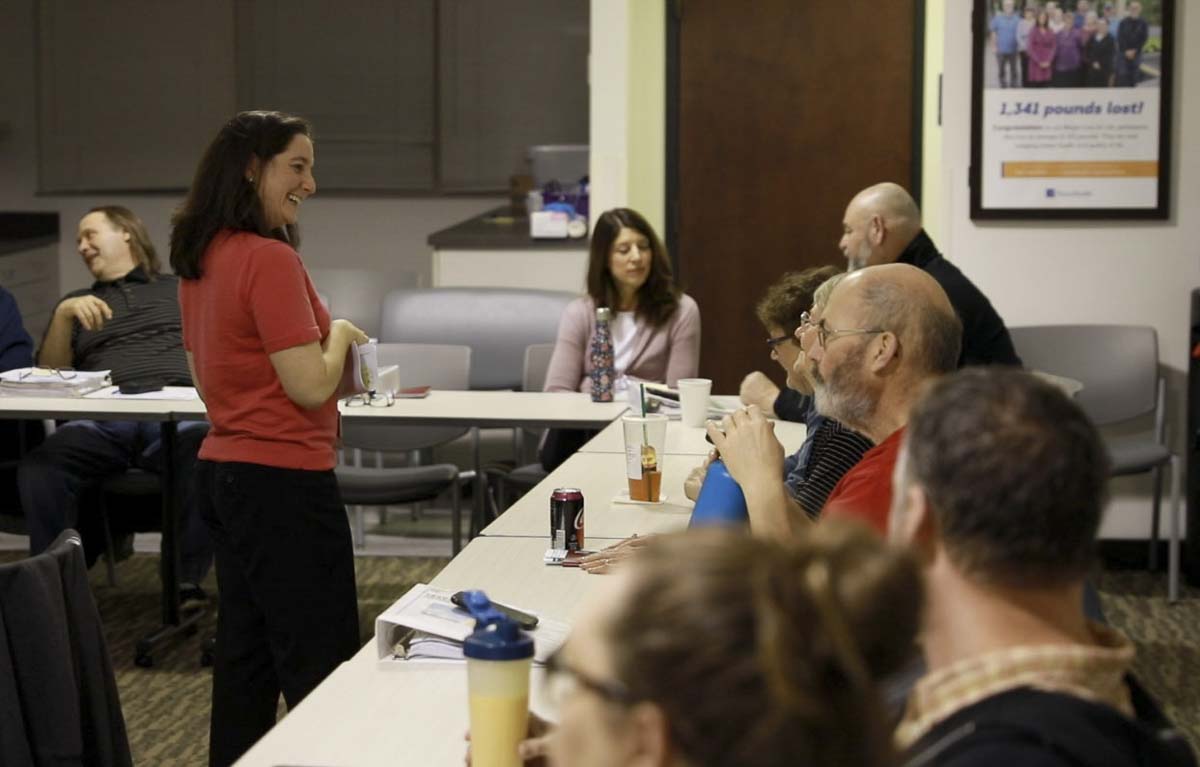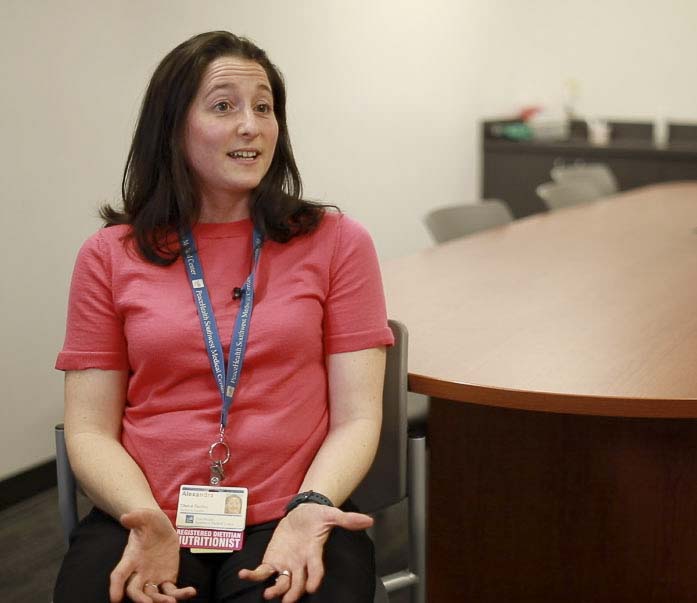Health Management Resources course named best of 2020 by U.S. News and World Report fifth year in a row
VANCOUVER — U.S. News and World Report recently ranked the Health Management Resources (HMR) weight-loss program, which is offered at PeaceHealth Southwest Medical Center, as the No. 1 best, fast weight-loss diet and program of 2020.
This is the fifth year in a row the HMR program has been awarded the recognition. At their Salmon Creek facility, PeaceHealth hosts a dietitian-led course using the HMR curriculum and meal plan in their class known as Weight Loss for Life (WLL).

“We have a minimum amount of food that people are required to eat to be medically safe and nutritionally safe,” said Ali Jack, a health educator and dietitian who teaches WLL. “But then you can add as many HMR foods to that to be full. So that’s what’s different about our program. Most people who are trying to lose weight, they just eat less, and that’s not really sustainable because when you’re hungry, it’s really hard to stick to your plan.”
Many students of the course at Peacehealth came in with uncontrolled diabetes and physical limitations. Through the two phases of the program, students first rethink their serving sizes and what they eat; transitioning to the HMR meals and shakes.
“The first few days are kind of hard because you’re used to eating much more than you’re eating on your first few days,” said Wendy Gebo, a WLL student. “I used to be diabetic. I’m no longer diabetic. I’m off all my blood pressure medications. I’m basically healthy now. Healthier than I’ve been probably 30 years.”

This first phase is often where many lose weight quickly and see rapid improvement through the meal plan, increased exercise and a higher intake of fruits and vegetables.
“Understanding the science behind weight loss and the metabolic changes of my body and learning, like how to support my body at this size. I mean, that’s the key,” said WLL student Cindy Burlingame. “Whereas like other programs, I may have been successful, initially losing weight, but I don’t think there’s that scientific support that we get from the nutritionists here.”
Unlike other diets, the HMR program at PeaceHealth is not centered around eating less and less, Jack explained. Instead, the students are taught to eat the correct foods, ones low in fat and high in protein as well as fiber, and then eat only those foods until full.
“The thing that made me the happiest was when they were talking about more is better,” said WLL student Angie Brown. “So I can eat, eat, eat. So, after the introductory session, I was sold. I signed up that night, and the rest, as they say, is history.”
Many students reported finding this helpful, as it forced them to eat healthier but did not cause them to be hungry all the time. All meals and shakes used in the program are vacuum sealed and ready to cook and eat. The strategy behind this, Jack said, is to take the often problematic decision making out of the equation for students.
“I don’t think I would have been as successful if I didn’t have that accountability,” said WLL student Andrew Colver. “It’s something I’m thinking about continuing for the next little bit so I can develop those habits. They really get you on the track in terms of making all those decisions for you in terms of food. Just go to the meetings and eat the food and I noticed the weight was coming off.”
The second phase of the class deals with longevity and maintaining healthy practices to maintain your goal weight. Each student works with health coaches and their peers to hold each other accountable to this endeavour.
Students said almost across the board that the group setting and subsequent accountability was a large factor for them. When in class, students weigh themselves and write their numbers on the class board.
Gebo has lost 131 pounds, Burlingame has lost 114 pounds, Brown has lost 109, and Colver has lost 75 pounds. Gebo and Colver both removed diabetes from their diagnoses as a result of the HMR WLL class.
For more information on the course, visit www.peacehealth.org.




